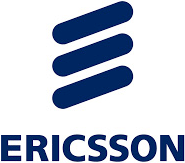Seven Important Healthcare Survey Questions
The relationship between patients and medical providers is unique, an intimate and businesslike combination unmatched by few other relationships. Healthcare surveys are a popular tool used to improve the physician and patient relationship and ensure that medical services are being delivered in the expected manner. These surveys constantly collect the data needed to ensure that all medical personnel who have contact with patients remain mindful of the patient’s emotional comfort as well as their medical needs.
1. Communication
Patients are dissatisfied if communication is lacking because of medical terminology or because of unfamiliarity with the symptoms of their condition. Physicians and employees often feel rushed because of the need to keep on schedule or time limits imposed by insurers or employers. Surveys that offer insight into how patients feel about their medical team’s communication capabilities can lead to change that improves relationships with patients.
2. Friendliness
Medical facilities can be cold and frightening places. A friendly smile or a warm greeting can do a lot to put a patient at ease. An understanding of the patient’s perception of the atmosphere in a facility can be used to dispel the fear commonly associated with medical facilities.
3. Helpfulness and wait time
The medical team has schedules and responsibilities, but so do patients. It’s important to respect the other’s needs, but this can’t happen until the medical team understands how patients perceive their willingness to address medical concerns in a timely manner. The less time the patient sits in a cold waiting room, the more satisfied they are with the experience.
4. Cleanliness
One of the most important aspects of any medical facility is cleanliness. Any perception that the facility is less than pristine is a red flag to patients and a potential source of discomfort and uneasiness. Keep papers and medical instruments organized to show the patient that cleanliness and organization is a top priority.
5. Billing
Clear and understandable bills and billing policies ensure prompt and correct payment. Do your patients understand your billing practices?
6. Patient support services
Sometimes patients need outside services such as home healthcare, physical therapy, or they may need information on a specific condition. Some patients may simply need someone to talk to. Offering access to the support services that patients need can make a major difference in patient satisfaction.
7. Hospital website
A website is a great marketing tool, but only if the user can find the information they need to answer their questions. A portion of a patient survey devoted to your website’s usability provides insight into possible design flaws or areas for improvement.
Healthcare surveys ensure that both sides in this important relationship understand the needs and perceptions of the other. A survey makes sure that patients have a voice in the relationship and doctors better understand patient needs. Analyzing the data provides the actionable insight needed to make positive changes.




























 By submitting this form you agree to our
By submitting this form you agree to our